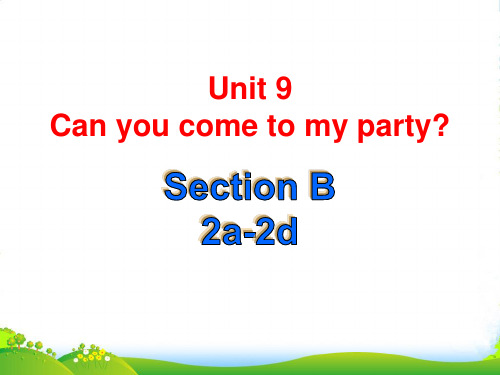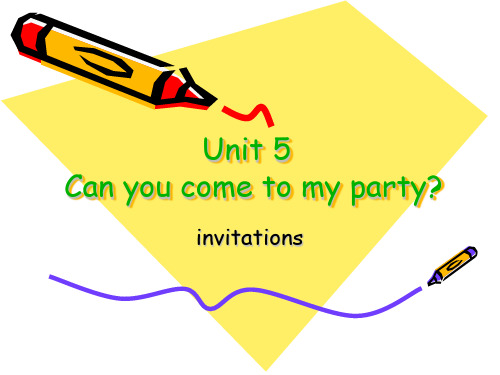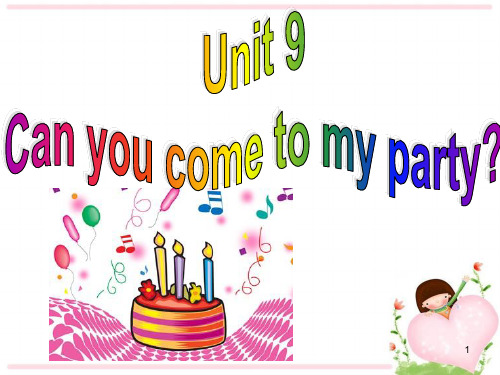1. A: What are you going to do on Saturday? B: I’m not sure. I might _w_a_t_c_h__T_V__.
2. A: What are you planning to do after school?
B: I don’t know. I__m_i_g_h_t_p_r_a_c_t_ic_e__th_e__v_io_l_in_.
e.g. I’d like to invite you to dinner. 我想邀请你吃晚饭。
2. accept v. 接受 e.g. They didn’t accept his money.
他们没有接受他的钱。
3. refuse v. 拒绝 e.g. The girl refused his invitation.
女孩拒绝ห้องสมุดไป่ตู้他的邀请。
3a Complete the answers with might
and one of the phrases in the box.
watch TV, on the weekend, my cousin, visit my grandparents, practice the violin
12. 不,他们没有空。他们可能必须去见朋 友。
No, they’re not _fr_e_e_. They _m_i_g_h_t _h_a_v_e_ _to__ meet their _f_r_ie_n_d_s__.
can 用于表示“_能__,__会___”,如: 汤姆会骑马。_T_o_m__c_a_n_r_i_d_e_a__h_o_r_s_e_. Can you…? 表达 “邀__请__或__建__议____”, 答语:同意用 S__u_re_,_I_’_d_l_o_v_e_t_o_.___ 不同意用 S_o_r_r_y_,_I_c_a_n_’_t_. _I_…____________





